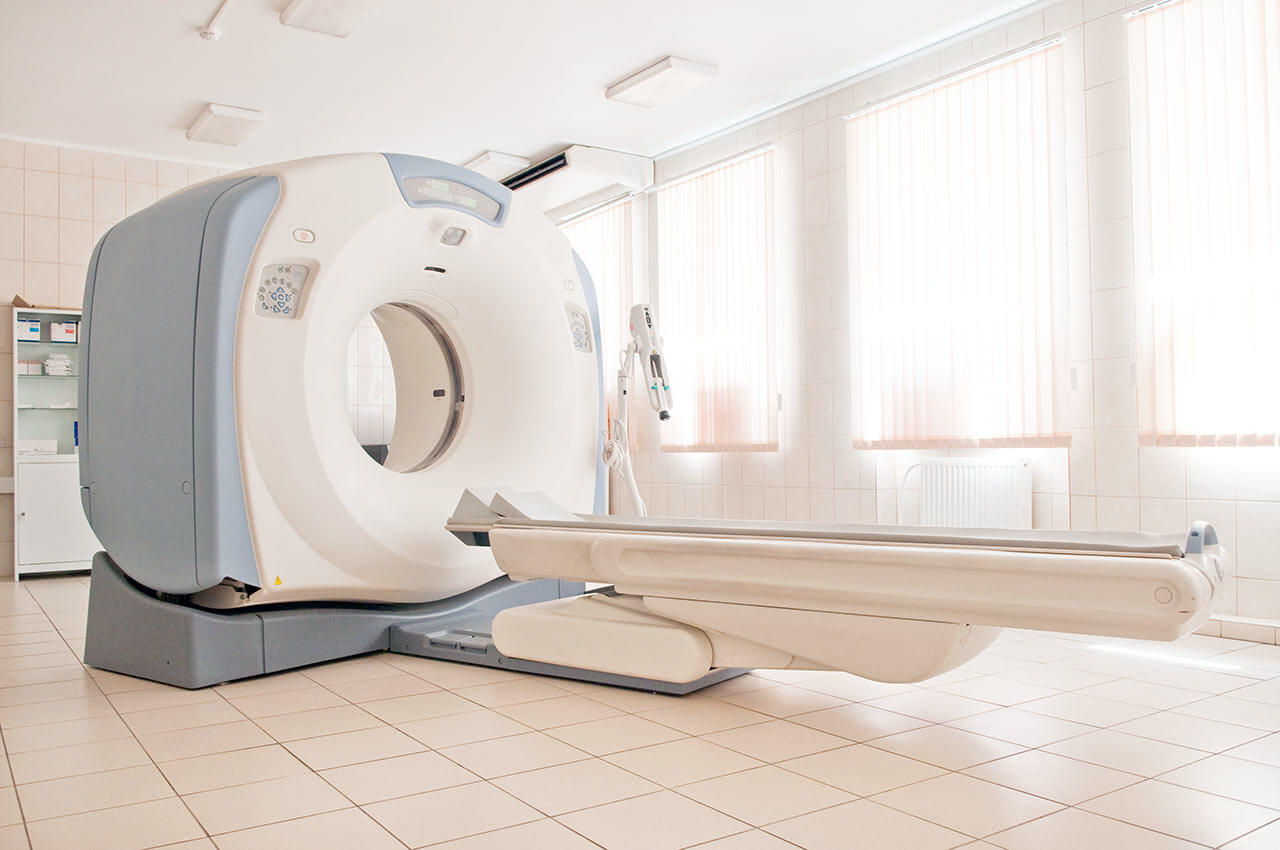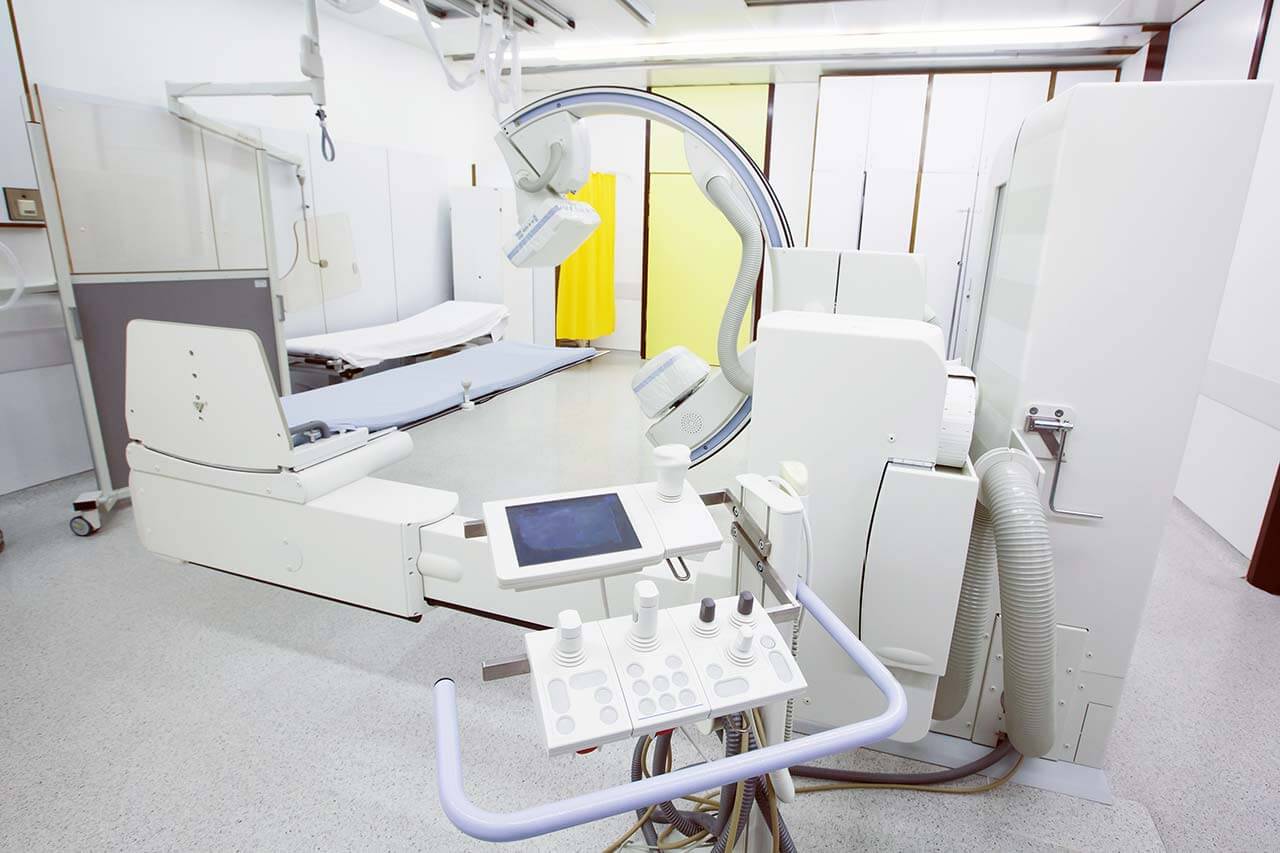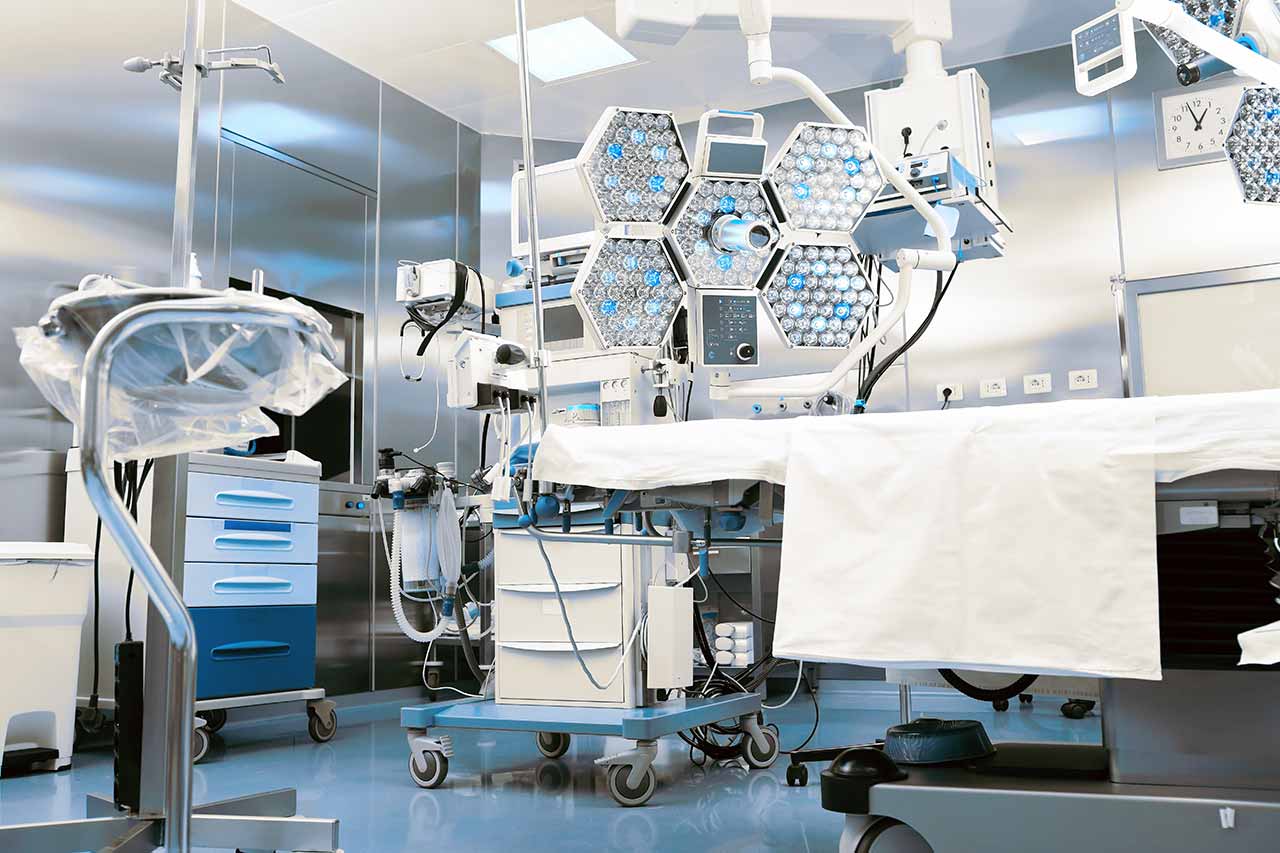
The program includes:
- Initial presentation in the clinic
- clinical history taking
- review of medical records
- physical examination
- neurological examination
- reflexes
- muscle strength
- muscle tone
- senses of touch and sight
- coordination
- balance
- laboratory tests:
- complete blood count
- biochemical blood test (CPK)
- inflammation markers (CRP, ESR)
- blood coagulation analysis (aPTT, PT, INR)
- electroencephalography (EEG)
- electromyography (EMG)
- brain CT/MRI
(if indicated clinically, additional cost is 650/1200 €) - muscle biopsy with histological study
(if indicated clinically, additional cost is 2000 €) - nursing services
- treatment by head doctor and all leading experts
- explanation of individual treatment plan
Required documents
- Medical records
- DNA analysis (if available)
- Muscle biopsy (if available)
Service
You may also book:
 BookingHealth Price from:
BookingHealth Price from:
About the department
The Department of Neuropediatrics and Muscular Diseases at the University Hospital Freiburg offers the full range of services in the treatment of children and adolescents with injuries, developmental defects and pathologies of the brain, nerves and muscles. In addition to the treatment of acute diseases, in which a full recovery of the child is possible, one of the department’s priorities is the diagnosis of developmental disorders and chronic diseases in children and adolescents, as well as their optimal treatment. The department has innovative methods of therapy and maintains close cooperation with the specialists from related fields and pediatricians from private practices, which guarantees a comprehensive approach. The department is headed by Prof. Dr. med. Janbernd Kirschner.
The department has a Social and Pediatric Center staffed by competent psychologists, educators, social teachers, speech therapists and physiotherapists. The main task of the center is to take care of children and adolescents with complex and chronic diseases, developmental problems and disabilities. Thus, all the necessary specialists, but not only neurologists, work with the child and his parents, which contributes to an optimal therapy result.
The main clinical focuses of the department include:
- Counseling on all issues of neuropediatrics and muscular diseases in children
- Diagnostics and treatment of brain tumors (in collaboration with the Department of Oncology)
- Diagnostics and treatment of lysosomal storage diseases (substrate reduction therapy, enzyme replacement therapy)
- Fabry disease
- Gaucher disease
- Pompe disease
- Mucopolysaccharidosis
- Niemann-Pick disease
- Wolman disease
- Cystinosis
- Hypophosphatasia
- Diagnostics and treatment of motor disorders (cerebral palsy)
- Diagnostics and treatment of muscular diseases
- Diagnostics and treatment of epilepsy
- Diagnostics and treatment of spina bifida
- Diagnostics and treatment of multiple sclerosis
- Consultations "Parents-baby" (for parents with children aged 0 to 3 years)
- Sleep disorders
- Eating disorders
- Increased anxiety
- Reluctance to play
- Restless behavior
- Other medical services
Curriculum vitae
Education and Professional Experience
- Study of Medicine at the University of Freiburg.
- Internship at the University of Newcastle (England) and the University of Bern (Switzerland).
- Specialization in Pediatrics (Doctor in Pediatric and Adolescent Medicine) at the University Hospital Freiburg.
- Specialization in Pediatric Neurology (Neuropediatrics) at the University Hospital Freiburg.
- Two-year Research Internship with a Scholarship of the German Research Foundation at the Children's Hospital of Philadelphia (USA).
- Head of the Laboratory of Myology at the Center for Pediatric and Adolescent Medicine.
- Doctoral dissertation defense and Venia Legendi in Pediatric and Adolescent Medicine, Neuropediatrics.
- Since 2017 Acting Medical Director of the Department of Neuropediatrics and Muscular Diseases at the University Hospital Freiburg.
Responsibilities and Positions
- Speaker of the Center for Neuromuscular Diseases and Head of the European Reference Network for Neuromuscular Diseases (EURO-NMD) at the University Hospital Freiburg.
- Leader of the Working Group on Neuromuscular Diseases. The main research focuses include: treatment of neuromuscular diseases within the framework of clinical trials, differential diagnosis and pathological physiology of myopathies and muscular dystrophies in childhood.
- Active collaboration with the European research communities MD-NET, TREAT-NMD and Neuromics.
- Head of the CARE-NMD project to improve treatment of patients with Duchenne muscular dystrophy in Europe, created by the European Union in 2010.
Selected Awards
- 2011 Felix Jerusalem Award of the German Society for Muscular Disorders.
- 2016 German Duchenne Foundation Award for Research.
Membership in Societies
- Steering Committee Member of TREAT-NMD (Deputy Chairman) and EURO-NMD.
- Member of the German Society of Pediatric and Adolescent Medicine.
- Member of the Society of Neuropediatrics.
- Member of the World Muscle Society.
- Member of the American Academy of Cerebral Palsy and Developmental Medicine.
- Member of the Society of Neurogenetics.
- Honorary Member of the Chilean Society of Pediatric and Adolescent Psychiatry and Neurology.
Photo of the doctor: (с) Universitätsklinikum Freiburg
About hospital
The University Hospital Freiburg is famous for its rich history and is one of the oldest and most prestigious medical facilities in Germany (one of the three best medical institutions in the country). The hospital was based on the Faculty of Medicine of the Albert Ludwig University of Freiburg, which celebrated its 550th anniversary in 2007. It should be noted that the hospital is proud of its world-renowned specialists, many of whom during their work here have become Nobel laureates.
The medical facility represents all fields of modern medicine. It consists of 42 departments, 11 institutes and 10 interdisciplinary centers. The highly qualified doctors of the hospital deal with the treatment and rehabilitation of patients with both common and rare diseases. All departments and institutes of the hospital take an active part in fundamental researches of international scale, due to which patients have access to the very latest achievements of medicine, advanced diagnostic methods, state-of-the-art medical equipment and proven effective methods of therapy.
The hospital has a variety of medical achievements, for example, the world's first TIPS procedure, the first implantation of the Jarvik-2000 artificial heart in Europe, the first robotic-assisted surgery on the brain, and the first combined cardiopulmonary transplantation in the land of Baden-Württemberg. In 2004, the University Hospital Freiburg became the first German hospital, which performed kidney transplantation in the incompatibility of blood groups. At the moment, the hospital belongs to medical centers with the greatest experience in performing such an operation.
An interdisciplinary approach to treatment, highly qualified staff, as well as individual patient care and a pleasant environment are key to the hospital’s success.
Photo: (c) depositphotos
Accommodation in hospital
Patients rooms
The patients of the hospital are provided with comfortable rooms with a pleasant design, which create a conducive atmosphere for recovery. The standard furnishing of the patient room includes a telephone, a free radio and TV, a device for calling medical staff, lockers and a safe, an adjustable bed, a chair and a table. The pediatric departments are designed with play areas. The patient may be accommodated in a single or double enhanced-comfort room (for example, with an ensuite bathroom) at an additional cost.
Meals and Menus
The patients are offered good three meals a day with a large selection of dishes. The patients inform about their wishes to the menu in advance, and this information is transmitted to the kitchen. Throughout the day, patients may drink mineral water and tea, which can be found in the department on special tables. The bedridden patients receive drinks from the nursing staff. Other drinks may be purchased at the hospital’s cafeterias and bistro, where patients can come along with visitors.
If you do not eat some products due to intolerance or other personal reasons, please notify the nursing staff in advance, so that all your wishes to be taken into account when preparing the menu.
Further details
Standard rooms include:
Television
All patient rooms have a free radio and TV. The patients can also watch the hospital’s own 24-hour channel with a varied program and interesting information.
Accompanying person
At the availability of free beds, the accompanying person may be accommodated in the same room with the patient, at an additional cost. In addition, the hospital offers special accommodation conditions for patients requiring long-term hospitalization. Parents have at their disposal special apartments in the children's hospital.





